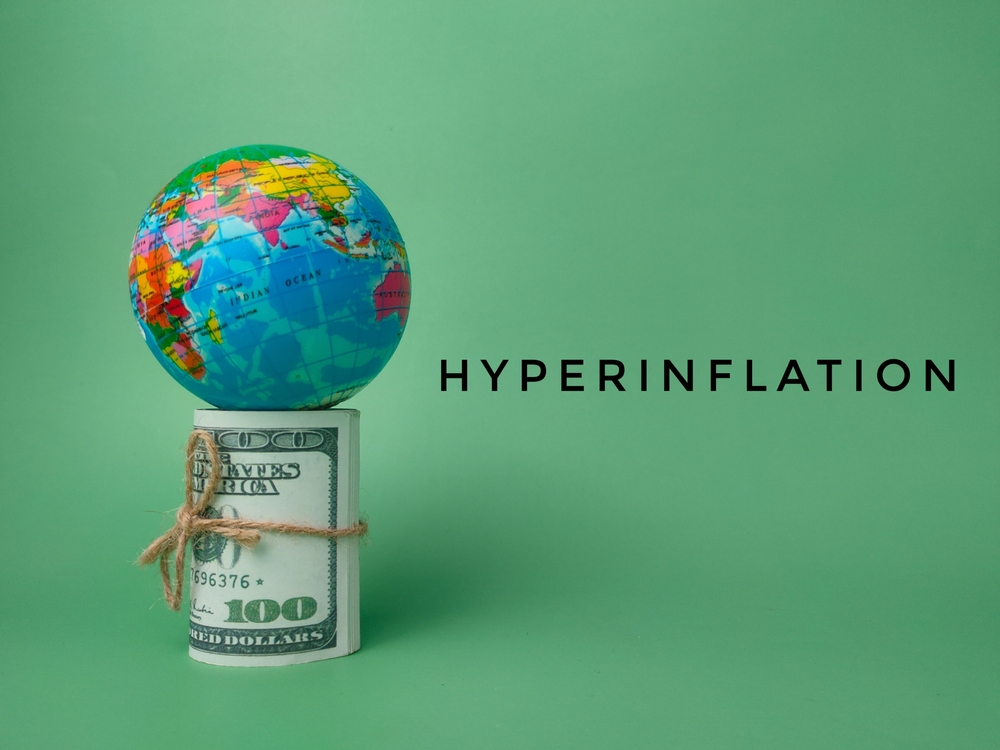
The thought of prices skyrocketing overnight and money losing value is enough to make anyone uneasy. While hyperinflation is rare in stable economies, economic shocks, debt crises, or political instability can make it a genuine concern. The best defense isn’t panic—it’s preparation. By taking a few proactive measures, you can safeguard your finances, maintain purchasing power, and protect your family’s stability if inflation ever spins out of control. Here are eight practical steps to help you prepare for a potential hyperinflation event before it’s too late.
1. Build a Reserve of Essential Goods
When you prepare for a potential hyperinflation event, one of the smartest first steps is to stock up on everyday necessities. During hyperinflation, the cost of food, toiletries, and medicine can rise so rapidly that supplies become unaffordable or unavailable. Focus on non-perishable items like canned foods, dry grains, and hygiene products that can be stored for months or years. Having a steady inventory at home reduces dependence on unpredictable market prices. It also gives you peace of mind knowing your basic needs are covered even if currency value drops.
2. Diversify Your Income Streams
Relying on a single paycheck can be risky if the economy takes a sharp turn. To better prepare for a potential hyperinflation event, create multiple sources of income—whether through freelancing, side hustles, or small business ventures. Having several revenue streams can help offset wage devaluation if inflation erodes the real value of your earnings. Consider learning new skills or starting an online service that generates income in various currencies or asset types. The more flexible your earning potential, the better you can adapt to economic instability.
3. Invest in Tangible Assets
When paper money loses value, physical assets often hold steady or even appreciate. To prepare for a potential hyperinflation event, consider allocating part of your portfolio to tangible items like gold, silver, or real estate. Precious metals historically retain purchasing power during periods of monetary crisis. Similarly, land or property can provide long-term stability and potential rental income. Owning tangible assets ensures you have something of lasting value regardless of currency fluctuations.
4. Reduce and Eliminate Debt
Debt becomes dangerous when inflation gets out of hand. Interest rates may climb quickly, and adjustable-rate loans can become unmanageable. If you want to prepare for a potential hyperinflation event, pay off variable-rate debts as soon as possible and avoid taking on new liabilities. Focus on clearing credit card balances, personal loans, and any high-interest accounts that could spiral if rates rise. Being debt-free during economic turbulence gives you more control and fewer financial obligations to juggle.
5. Keep Emergency Cash and Bartering Items
It might sound counterintuitive, but having cash on hand can still be useful at the onset of hyperinflation. When you prepare for a potential hyperinflation event, set aside small denominations that can help during temporary disruptions in banking systems. However, once inflation accelerates, traditional currency may lose purchasing power quickly. That’s where bartering items—like canned food, batteries, and toiletries—can serve as alternative forms of trade. These goods often become valuable in local exchanges when paper money fails.
6. Strengthen Your Community Connections
No one can navigate a major economic disruption alone. One of the most overlooked ways to prepare for a potential hyperinflation event is to build relationships with neighbors, local farmers, and small business owners. Strong community networks can provide mutual support, access to local resources, and opportunities for bartering or skill-sharing. People who work together can pool resources and help stabilize each other’s needs. Investing in community trust today can be as valuable as financial preparation.
7. Learn Self-Sufficiency Skills
When inflation spirals, even basic services can become prohibitively expensive. That’s why learning self-sufficiency skills is a key way to prepare for a potential hyperinflation event. Start by learning practical abilities like gardening, home repair, or basic cooking from scratch. These skills reduce reliance on expensive goods and services while helping you stretch your resources further. Knowing how to fix, grow, or make what you need not only saves money—it empowers you to thrive under pressure.
8. Protect and Diversify Your Savings
Your bank account may not be as safe as it feels during economic instability. To prepare for a potential hyperinflation event, spread your savings across different forms of value. Keep a portion in traditional accounts for accessibility, but also consider alternatives like precious metals, stable foreign currencies, or inflation-protected bonds. Diversification prevents your entire nest egg from being tied to a single failing system. It’s about striking a balance between liquidity and long-term preservation.
Turning Preparation Into Peace of Mind
Preparing for a potential hyperinflation event doesn’t have to feel extreme—it’s simply a responsible step toward financial resilience. By taking practical measures today, you protect yourself from panic later. Focus on small, consistent actions that strengthen your financial position and reduce dependency on fragile systems. Whether or not hyperinflation occurs, these habits will leave you more stable and self-reliant. True financial confidence comes not from predicting the future, but from being ready for it.
What steps have you taken to safeguard your finances from inflation or other economic shocks? Share your strategies in the comments below!
What to Read Next…
- 8 Genius Hacks to Beat Inflation While Maintaining Security
- Could Ignoring Inflation Erase Decades of Savings
- 8 Brutal Ways Inflation Punishes Retirees More Than Anyone Else
- 10 Times Inflation Changed What Families Could Afford Overnight
- Could the Cost of Raising Pets Outpace Inflation Itself
The post 8 Necessary Steps to Prepare for a Potential Hyperinflation Event appeared first on The Free Financial Advisor.







